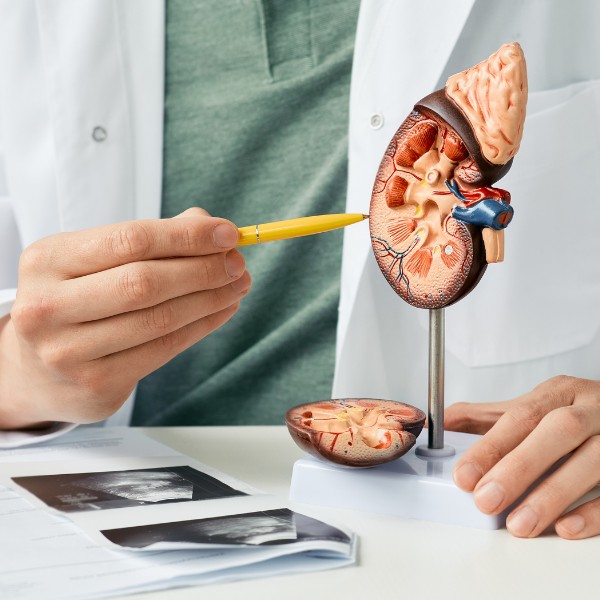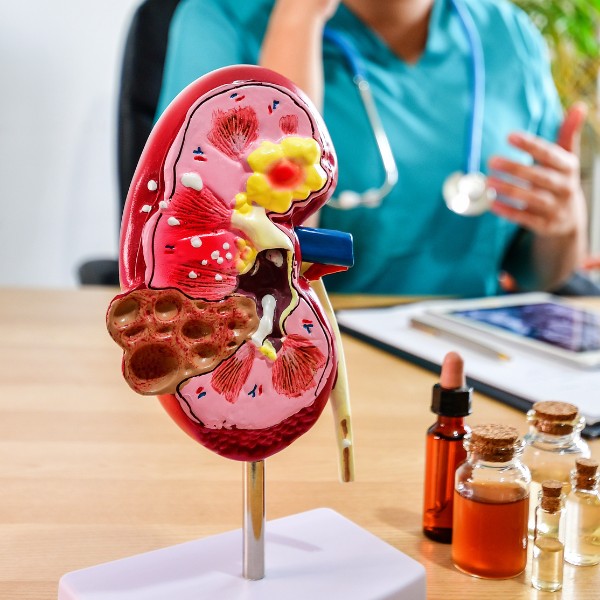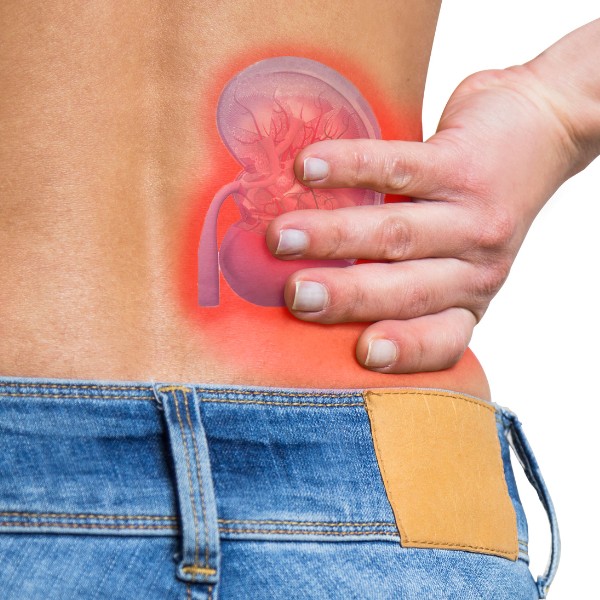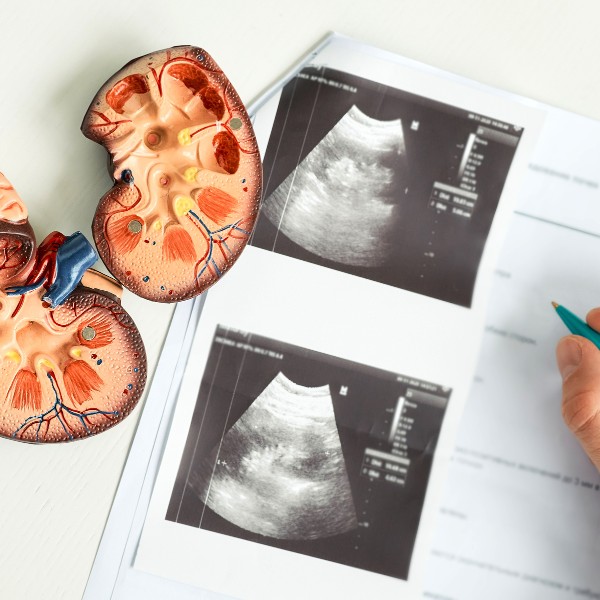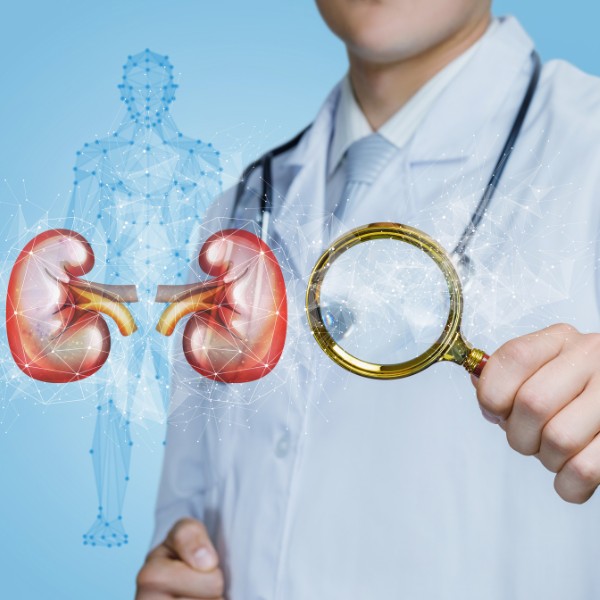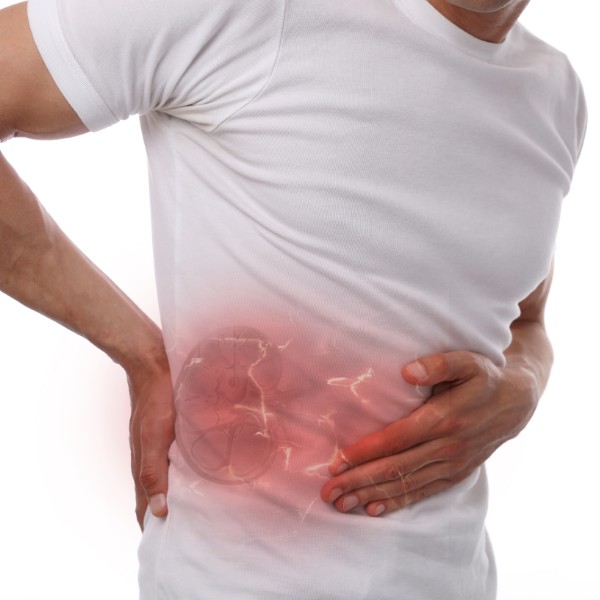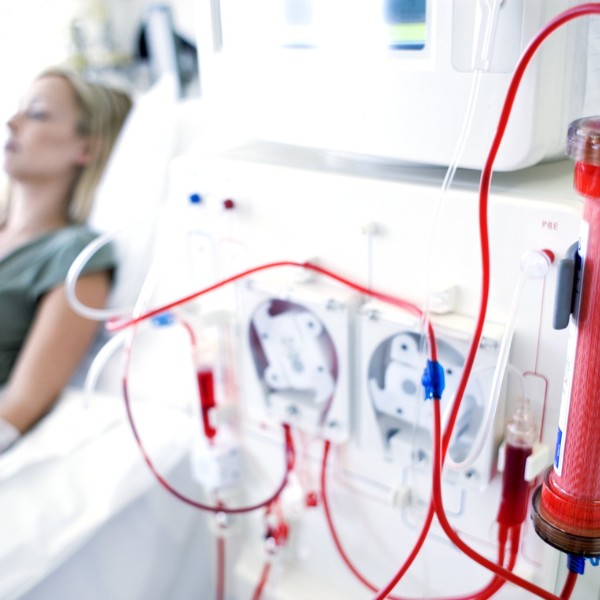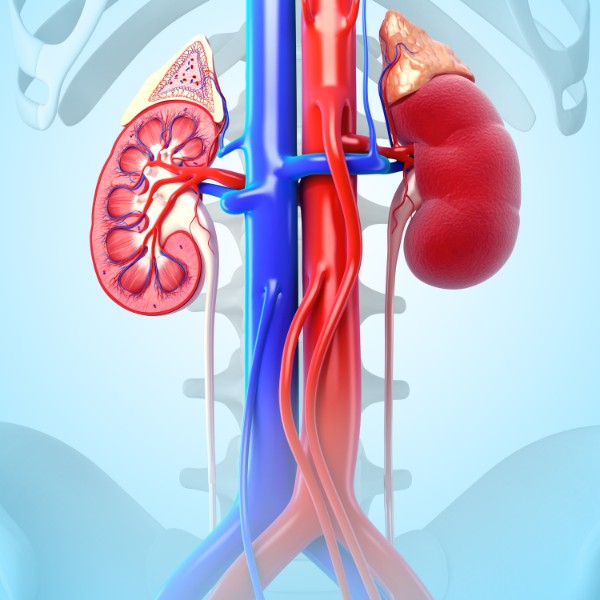KIDNEY DISEASE
Kidney Disease
Our nephrologists treat people with various kidney diseases, including those who have lost function and must rely on dialysis or a kidney transplant.
Kidney diseases are disorders that affect the kidneys, the two organs that remove waste products, produce certain hormones, and regulate the level of chemicals in the blood.
What are Kidneys?
Kidneys are bean-shaped organs located just below the ribcage, one on each side of your spine. They consist of millions of small units called nephrons.
Each nephron is a glomerulus of blood vessels surrounded by a capsule, which collects filtered blood- first urine. Then it flows through lanes of tubes and is concentrated into the final form of urine.
Kidneys are part of the genitourinary system. Each kidney connects by the ureter with the urine bladder, where urine is collected. Each problem with urine flow or infection of the urinary tract may harm kidney function.
Kidney Disease
Our nephrologists treat people with various kidney diseases, including those who have lost function and must rely on dialysis or a kidney transplant.
Kidney diseases are disorders that affect the kidneys, the two organs that remove waste products, produce certain hormones, and regulate the level of chemicals in the blood.
What are Kidneys?
Kidneys are bean-shaped organs located just below the ribcage, one on each side of your spine. They consist of millions of small units called nephrons. Each nephron is a glomerulus of blood vessels surrounded by a capsule, which collects filtered blood- first urine. Then it flows through lanes of tubes and is concentrated into the final form of urine.
Kidneys are part of the genitourinary system. Each kidney connects by the ureter with the urine bladder, where urine is collected. Each problem with urine flow or infection of the urinary tract may harm kidney function.
What is Kidney Function?
The primary function of the nephron is to filter the whole blood of our body from unnecessary products of metabolism and densify the urine. Kidneys have many different roles. They also regulate the level of electrolytes such as natrium, chlorine, potassium, and calcium and regulate acid-base balance. What is more, they influence hormonal regulation.
They produce erythropoietin (EPO) hormone, which is responsible for appropriate red blood cell production and takes part in synthesizing the D3 vitamin active form.
Did you know that each kidney consists of two million microfabrics called nephrons?
They are the minor units responsible for what kidneys do- filtering blood from waste metabolism products, generating an active form of vitamin D3, erythropoietin (EPO), and producing urine.
During life, we lose our nephrons due to different diseases f.eg. Hypertension and diabetes lose them more quickly. Then the function of the kidneys is insufficient.
What is CKD?
- One of the most common diseases is chronic kidney disease (CKD).
- Kidney function or structure in CKD is inappropriate for at least three months.
- It leads to irreversible damage to the architecture of the kidneys and end-stage renal failure, which needs dialysis.
- Diagnosing early may help you live a better life for a longer time.
- It is caused mainly by diabetes, hypertension, and glomerulonephritis. CKD is more common in older people, African-Americans, smokers, people who are obese, and people with a family history of kidney disease.
- Five CKD stages depend on the estimated glomerular filtration rate (eGFR) level. It is an indicator of renal failure; the lower degree, the worst the function of the kidney is.
Who is at risk for Kidney Dysfunction?
-
-
- People with low birth weight
- People with a positive family history of kidney disease
- People older than 40 years of age
- People with abnormalities in kidney structures
- Diabetics
- People with hypertension and cardiovascular dysfunction
- People who smoke cigarettes
- People who suffer from obesity
-
What are the symptoms of Kidney failure?
In the beginning, kidney disease may not give any evident symptoms. But they can be caught by regular lab tests, especially in patients with a high risk of kidney failure.
The first symptoms may be visible changes in urine- bubbles, change of color, and more significant or fewer amounts of urine.
Who is at risk for Kidney Dysfunction?
-
- Fatigue, insomnia
- Itchy skin, bruises, change of skin color
- Worse appetite, nausea, vomiting,
- Anemia, bleeding
- Abdominal pain and cramps
- Swelling of the face, hands, feet, and legs
- Dyspnea
- Hypercalcemia
- High blood pressure
If you are in a risk group or have any symptoms of kidney failure, you should contact our specialist to diagnose your problem and better manage your health.
Other Kidney Diseases
Glomerulonephritis is a group of diseases usually affecting two kidneys. The common reason for each type is inflammation of the glomeruli. It mainly happens due to diabetes, lupus, hepatic B or C virus infection, and Streptococcal infection, but sometimes the cause remains unknown.
Acute kidney injury (AKI) it’s an urgent type of kidney disease that starts due to 3 possible ways:
-
- Dehydration– there’s insufficient blood flow through the kidneys, which causes their persistent damage
- Straight kidney damage due to toxins, the toxic concentration of medications, drugs, inflammation of glomeruli
- Obstruction of the urinary tract- tumor, hypertrophy of the prostate gland
Early hospitalization, diagnosis, and treatment can protect from constant kidney damage, and most patients can survive.
Pyelonephritis is an infection of the kidney, especially from bacterial infection; it can spread from the lower part of the urinary system or is caused by anatomic obstacles in urine flow. Untreated may lead to sepsis and death.
Symptoms are high fever, nausea, burning with urination, and frequent urination. Late diagnosis and treatment may lead to constant dysfunction of the kidneys.

